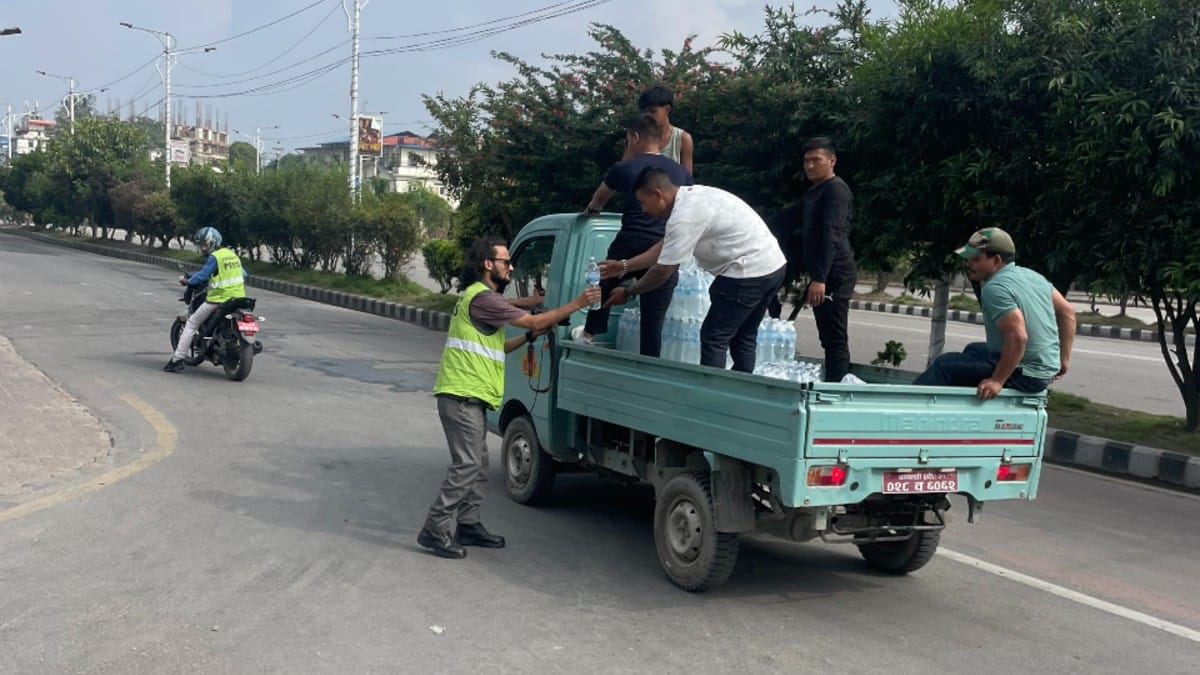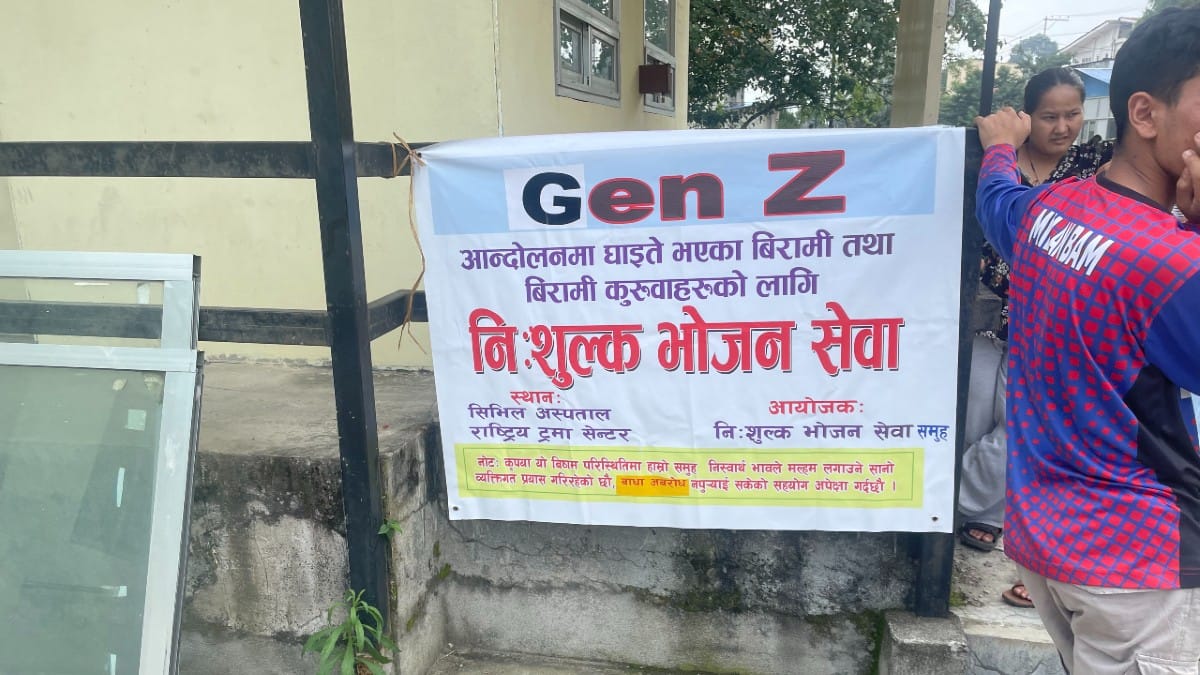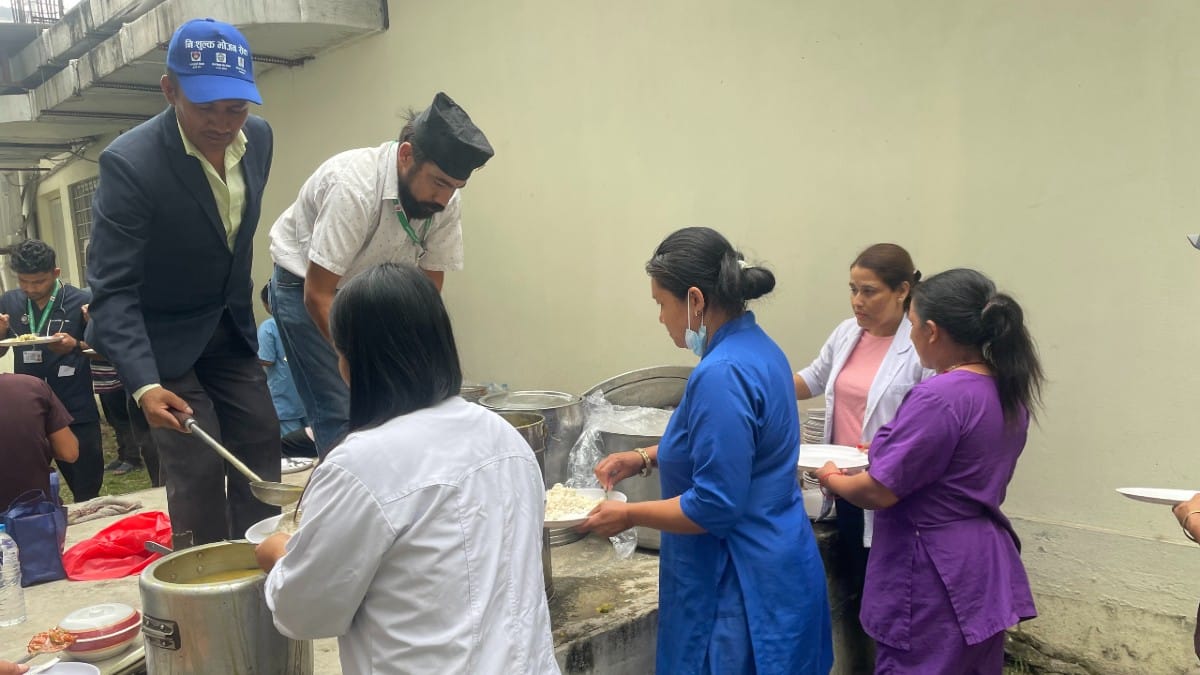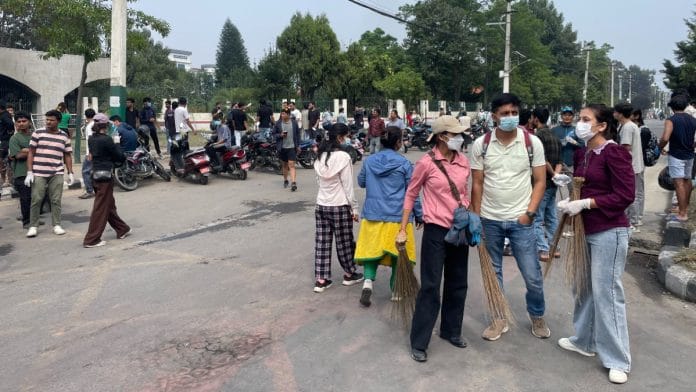Kathmandu: A day after anti-corruption protesters set fire to government buildings here, including the parliament and the transport management department, local residents Wednesday cleared the scattered debris from streets, while others stepped in with water and food for the volunteers, the injured, and health workers.
Outside the charred remains of Sansad Bhavan, local residents of all ages, wearing white gloves and carrying brooms, swept the streets. Some were carrying large, black trash bags for others to dump pieces of debris, abandoned personal belongings, burnt metal rods, ash, and slippers.
“Gen Z started the protest yesterday (Tuesday), but the burning of public property does not represent who we are,” said Sanjay Choudhary, a Mumbai-born Nepalese citizen, adding that the crowds gave the protests an unfortunate, violent turn. “We have come here today to help clean up our city and show people the true spirit of Kathmandu,” Choudhary added.
No organisation spearheaded the clean-up drive, which Kathmandu residents loosely coordinated to clean up different parts of the city. Since New Baneshwor, the area that houses several government buildings, saw the most damage, the highest concentration of residents sweeping the streets congregated there.
While residents were busy with the clean-up, a baby blue Mahindra truck, with an open backspace and cartons of one-litre water bottles stacked on top of each other, came down the road. A group of local people in the truck handed out the bottles to volunteers, journalists, and army personnel, as well.

“We started at roughly 7 am,” said the truck driver while answering a phone call to coordinate the route of another truck, which was also distributing water. “We just thought we would do our part, since there is no public transportation, and people are walking great distances today,” he added.
Also Read: Nepal protest shows Gen Z believes in comeuppance—not due process
Kathmandu protest: ‘Cops lathi-charged’
Diagonally opposite the parliament building sits Civil Service Hospital. This government-run facility has been seeing a constant stream of injured protesters at its gates since the violence Monday night, when riot police opened fire on crowds of protesters, leading to the reported deaths of 19 of them.
Though the hospital discharged most injured victims Wednesday, doctors remain on high alert in case more people arrive. “The police lathi-charged people all the way inside the hospital, up to the emergency ward,” said one of the doctors, who treated several of the protesters himself. “And they used both rubber and metal bullets on the protesters.”
A quiet, but uneasy air has settled over the hospital compound. The chaos of the past two days is still on people’s minds as they go about their routine tasks.
In a corner of the compound, a large white poster hangs, addressing patients and caretakers injured in the protest.
‘Free meal service’ is written in red Nepali characters on the poster, below the word ‘Gen Z’, in a setup by a group of non-government organisations that banded together to provide hot meals across multiple hospitals in the city.

“This is completely self-motivated. We have no donors,” said Matrika Pyakurel, a part of the Krishna Pranami Samaz, a religious organisation. “We started this two days ago and have fed 400 to 500 people.”
An ambulance hired by Pyakurel to deliver the food to all the hospital sites from the kitchen started unloading steel buckets of hot food. Doctors, nurses, and patients’ relatives crowd around the temporary food outlet, filling up their plates with rice and daal (lentils).

Pyakurel points out an older woman on his side, who runs a private wedding catering business and owns a venue hall, which has now been turned into a kitchen to run the initiative. “She has been helping to prepare all the food, no charge whatsoever,” Pyakurel said, smiling at the woman, as she shied away from the adulation.
(Edited by Madhurita Goswami)
Also Read: Maoism to new constitution—Nepal saw many changes, but the same old politics took control






